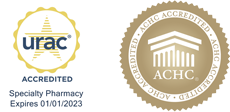Headache Awareness Month is almost over. For our final post of the month, let’s take a look at what headaches actually are and how they occur. Headaches result from signals between the brain, blood vessels, and nerves. Some headache sufferers believe their pain comes from the brain, but it actually comes from the nerves in the skull, blood vessels, and head muscles. The reasons for these nerves to cause pain are not understood, but when they do we experience headaches.
People see doctors for headache treatment more than any other source of pain. Around 45 million Americans suffer from them. Most sufferers experience tension headaches or migraines. Luckily, doctors can successfully treat 85% of headaches.
There are common causes of head pain, including stress, pollution, noise, poor lighting, changes in the weather, and odors. What you eat may also cause headaches, especially alcohol, caffeine, chocolate, and foods with nitrates and MSG.
If you have a headache that needs treatment, contact your doctor. They can help you find the cause of your pain, takes steps to prevent future headaches, and make sure your pain is not a sign of something serious.
Medical Information Disclaimer
The health-related information and linkages to other sites on the Josefs Pharmacy website is meant for basic informational purposes only. Josefs Pharmacy website is NOT designed or intended to provide medical advice, professional diagnosis, opinion, treatment, services, or substitute for a doctor’s appointment or medical care. Due to the ever changing nature of medical information, information on this site or linkages to other sites should NOT be considered current or exhaustive or be relied on for any recommendation. Josefs Pharmacy does not recommend or endorse any products or services or information provided on linked websites. The linked websites may have graphics or content you find offensive: Josefs Pharmacy, its affiliates, and vendors, have no control over such content and accept no responsibility for such materials. Josefs Pharmacy is NOT liable for any advice, information, products, or services you obtain through this site.
Users of this website are advised to consult with their physician before making any decisions concerning their health. IF YOU BELIEVE YOU HAVE A MEDICAL EMERGENCY, YOU SHOULD IMMEDIATELY CALL 911 OR YOUR PHYSICIAN

